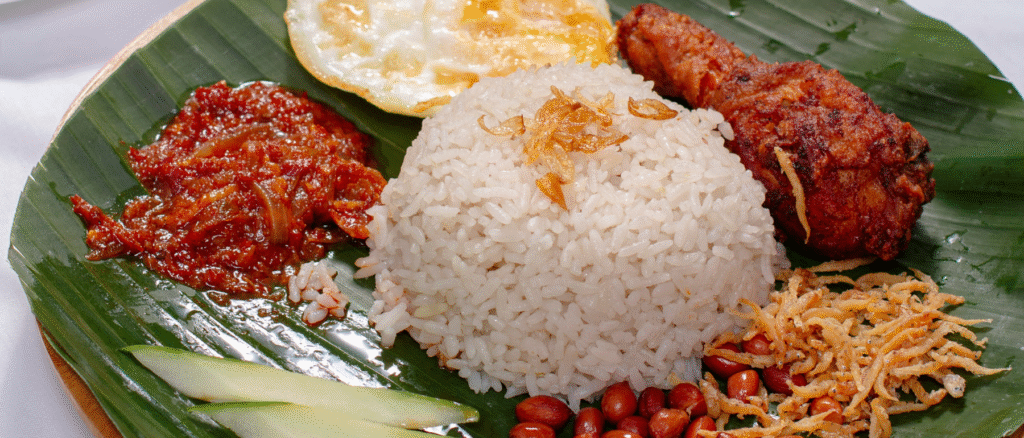A Leaf Plate and a Smile
They placed the food in front of me — not in steel plates, not on fancy ceramics, but on freshly cut sal leaves, stitched together by hand. There was no spoon, no fork. Just the warmth of the host’s smile and the gentle invitation to eat with my hands — the way it’s always been done here.
Bastar’s food isn’t restaurant cuisine. It’s forest-born, flame-cooked, and family-shared. Every dish has a memory, a reason, and a rhythm that reflects the land and the people who live closest to it.
Smoke, Rice, and Bamboo
I began with something familiar — rice, cooked over a woodfire, its subtle smokiness mixing beautifully with the earthy aroma of bamboo shoot curry. The texture was soft yet fibrous, mildly sour, and completely addictive.
Bamboo shoots, harvested fresh from the forest, are sliced, fermented, and slow-cooked with local spices in mustard oil. There’s nothing mass-produced about it — just generations of instinct guiding the hands that prepare it.
Chapura — Spice with a Sting
Next came chapura — the infamous red ant chutney. Yes, it sounds wild, but the flavor? Spicy, tangy, and surprisingly balanced. It’s more than food — it’s tradition, passed from mothers to daughters, rooted in immunity, survival, and taste.
The ants are roasted over fire, crushed with garlic, chilies, and salt, and transformed into a powerful paste. It’s fiery, bold, and humbling.
Earthy Sides, Freshly Foraged
There was boiled pumpkin with salt, wild greens sautéed with garlic, and sun-dried fish pan-fried till crisp. No preservatives. No excess. Just the flavor of what was grown or foraged that morning.
In this kitchen, nothing goes to waste. Every bite carries the philosophy of enough — cooked with what’s available, what’s seasonal, and what’s sacred.
Landa & Mahua: The Forest’s Brew
And then came the real celebration — a cup of rice beer, locally known as Landa or Handiya. Slightly sour, slightly sweet, fermented with love, and often served in a leaf bowl.
It wasn’t just a drink — it was a moment of connection. With the person who brewed it. With the land that gave the grain. With the silence that followed each sip. Here, a shared drink is a gesture of inclusion — one that speaks louder than words.
If you’re lucky, someone might pass you a small Mahua sweet, made from the dried flowers of the sacred Mahua tree — warm, grainy, and deeply rooted in Bastar’s identity.
The Kitchen Has No Walls
There are no fancy restaurants here.
The kitchen is often a woodfire in a mud hut. The dining room? A shaded courtyard under a mango tree, where chickens wander and laughter fills the air. Yet, the hospitality? It’s richer than anything you’ll find in a five-star.
Food here is never hurried. It’s slow, soulful, and honest. It’s not about presentation — it’s about presence.
Food That Grounds You
By the time I wiped the last bit of chutney with my fingers, I realized something:
In Bastar, food doesn’t just fill you — it grounds you.
It brings you closer to the earth, to simplicity, and to the people who still know how to eat with soul.
It’s a ceremony without chants, a conversation without words, a story told through spice and smoke.
